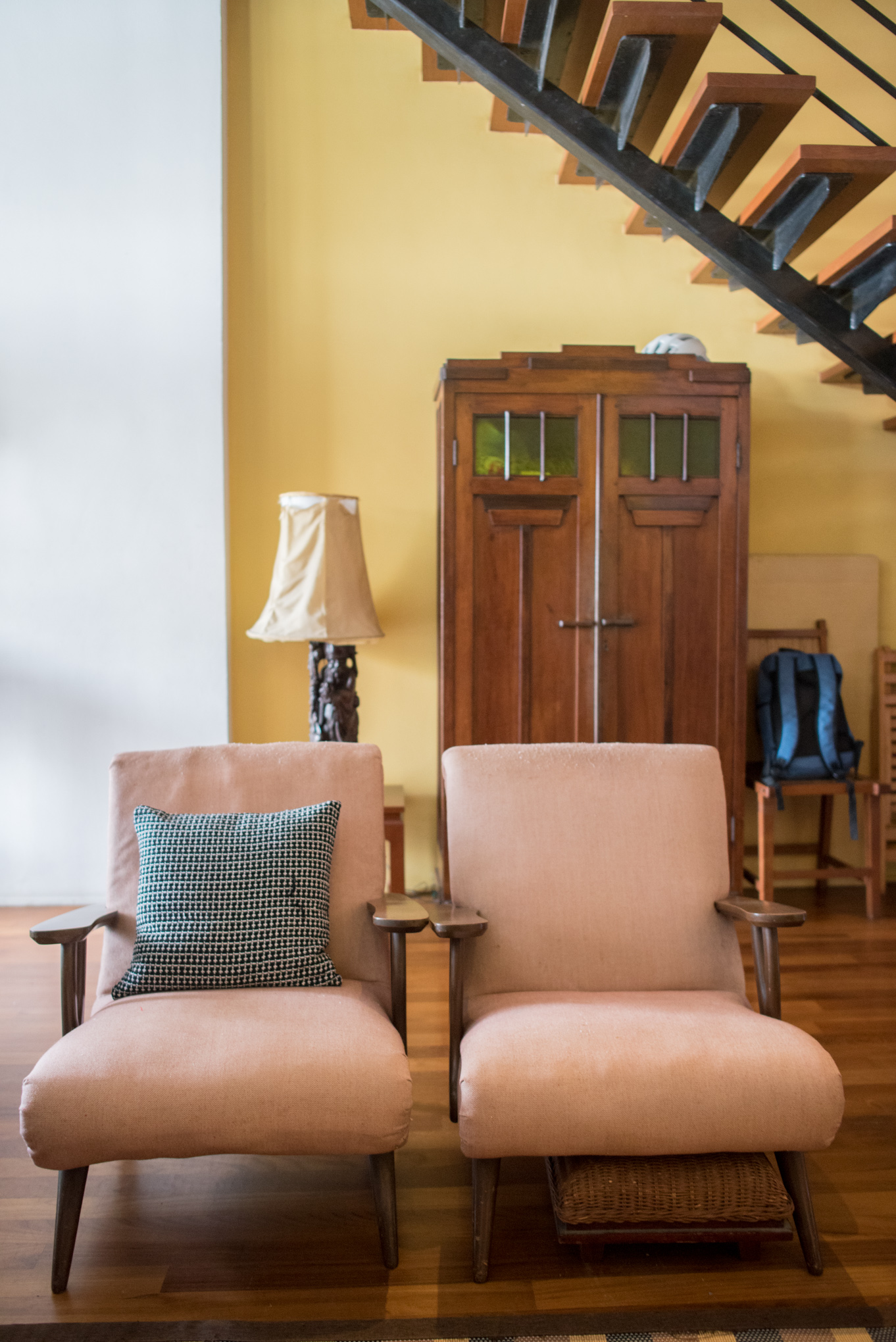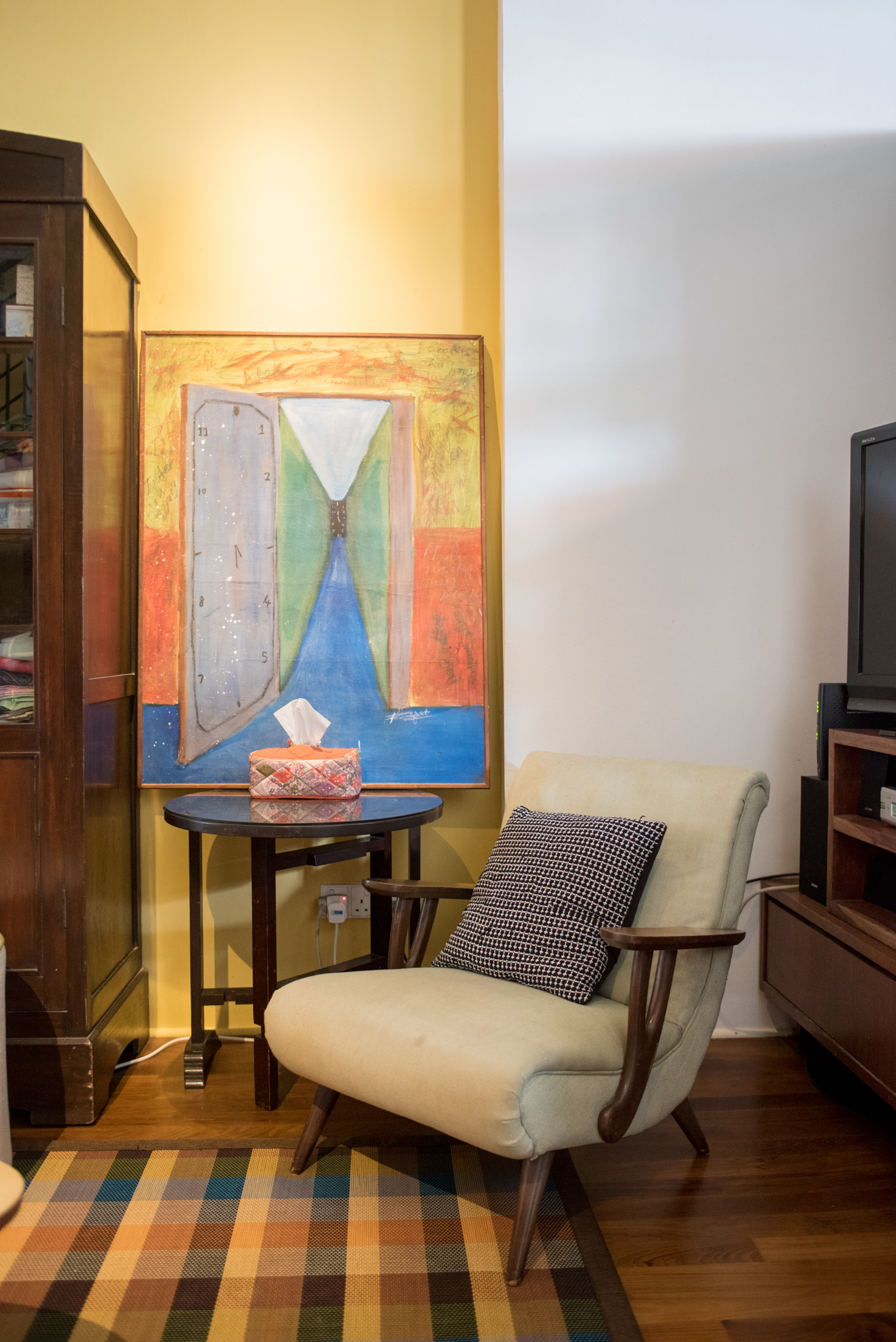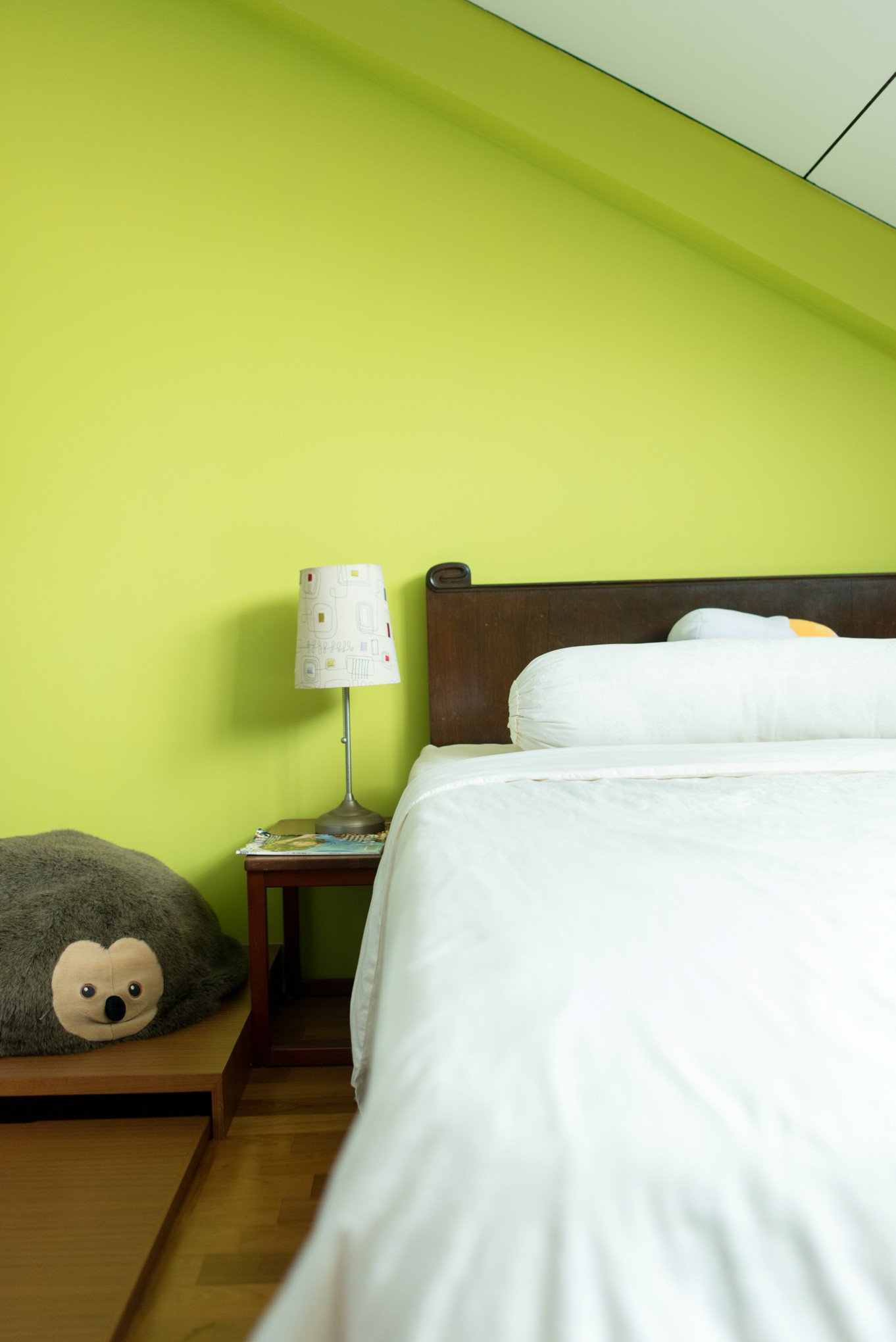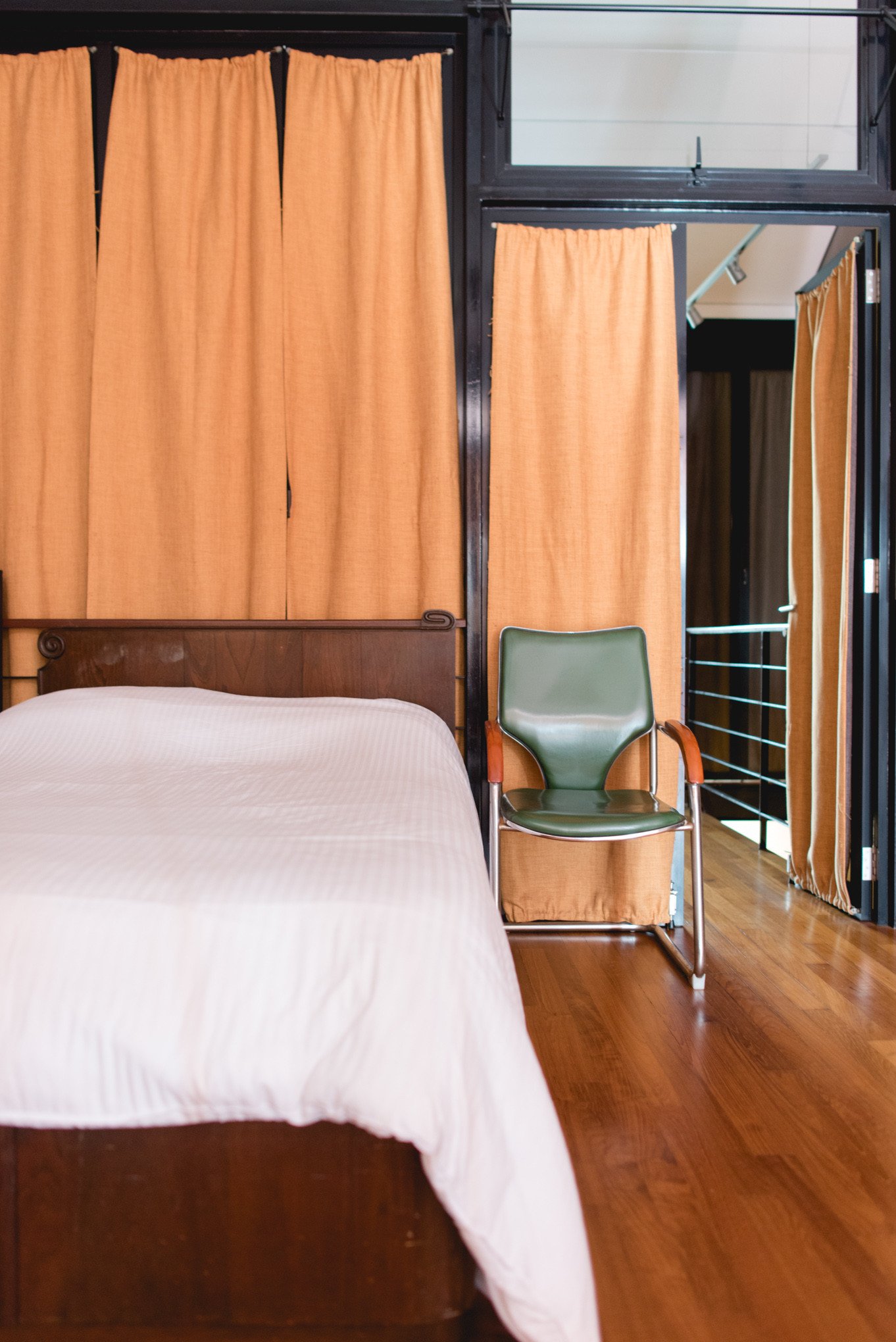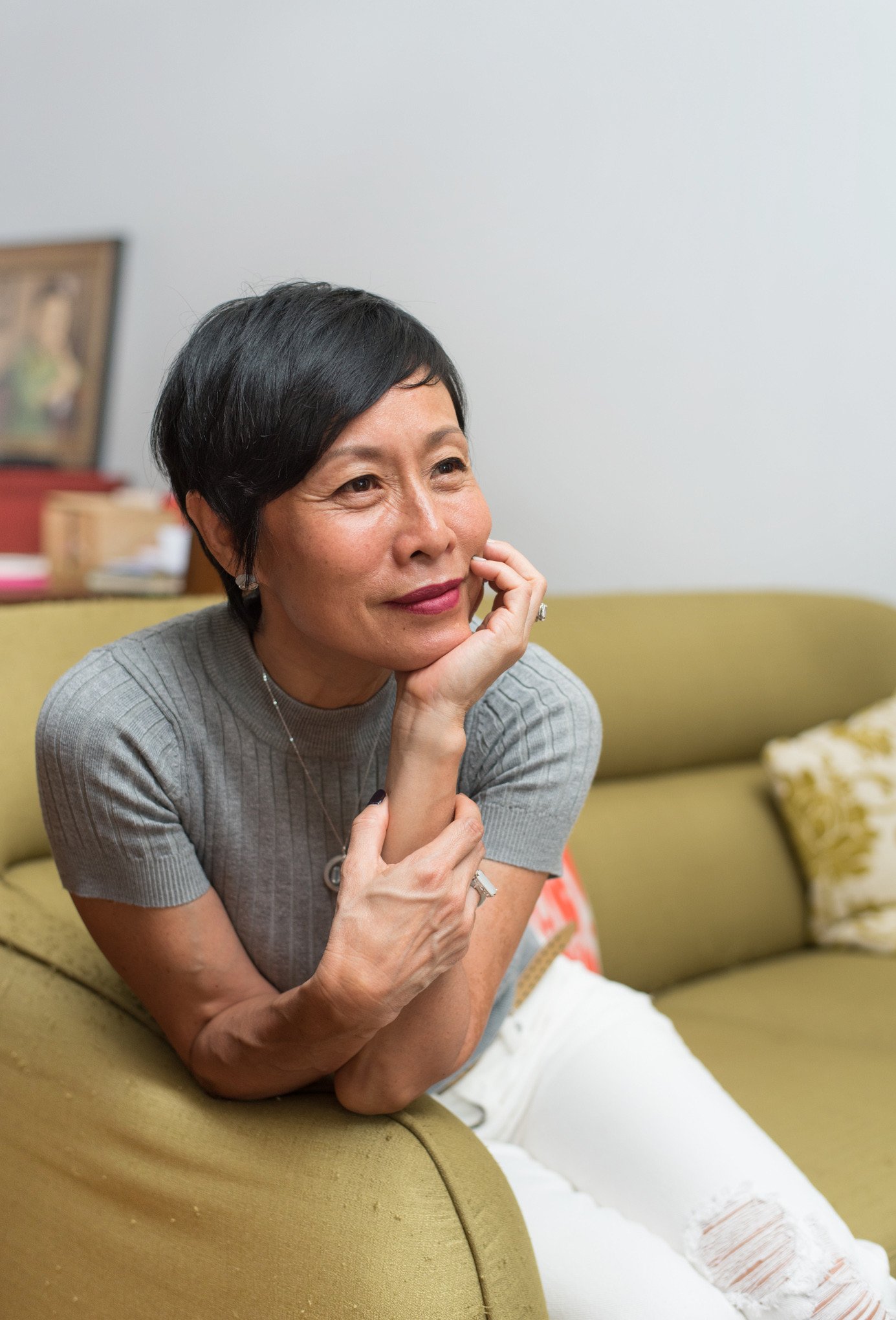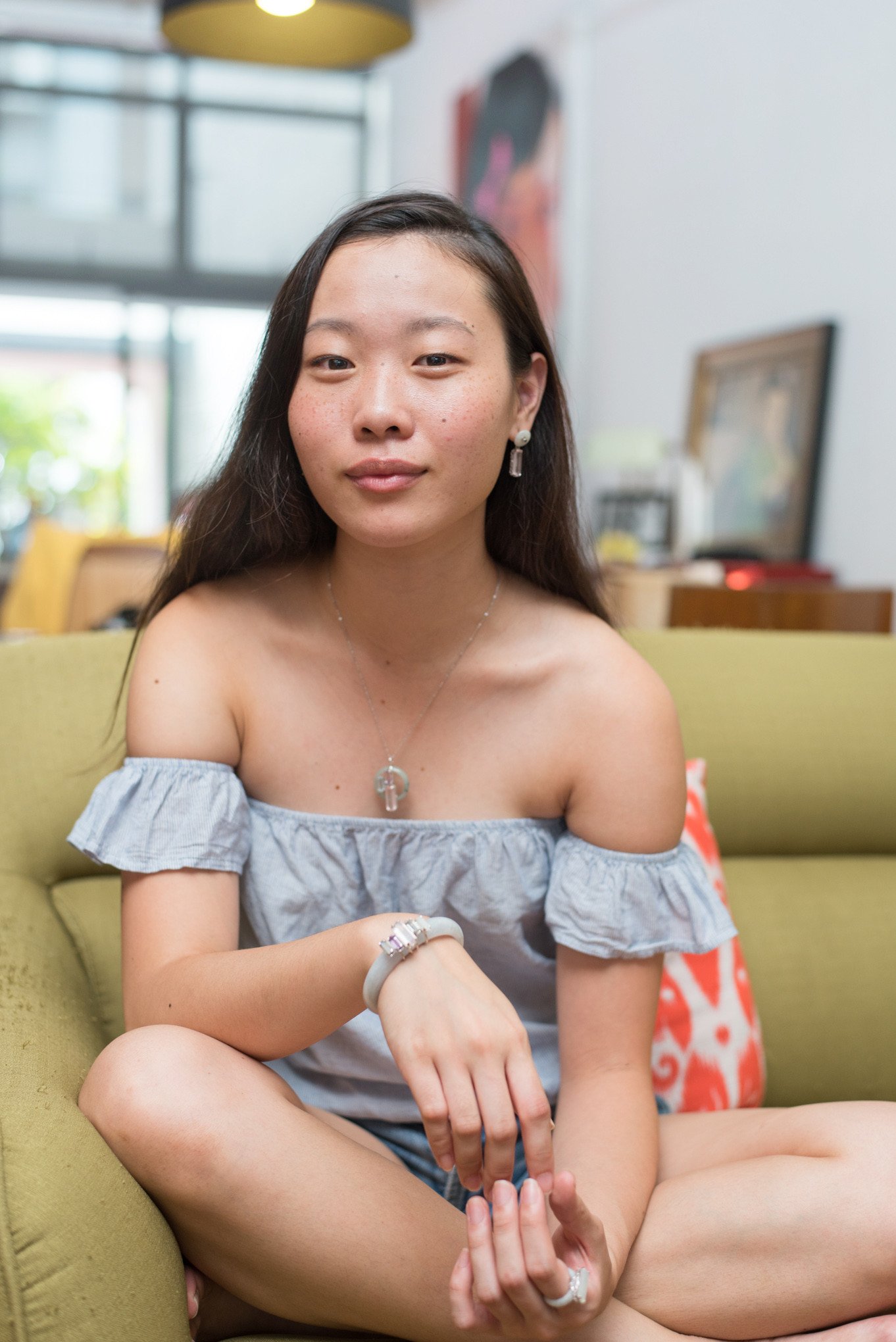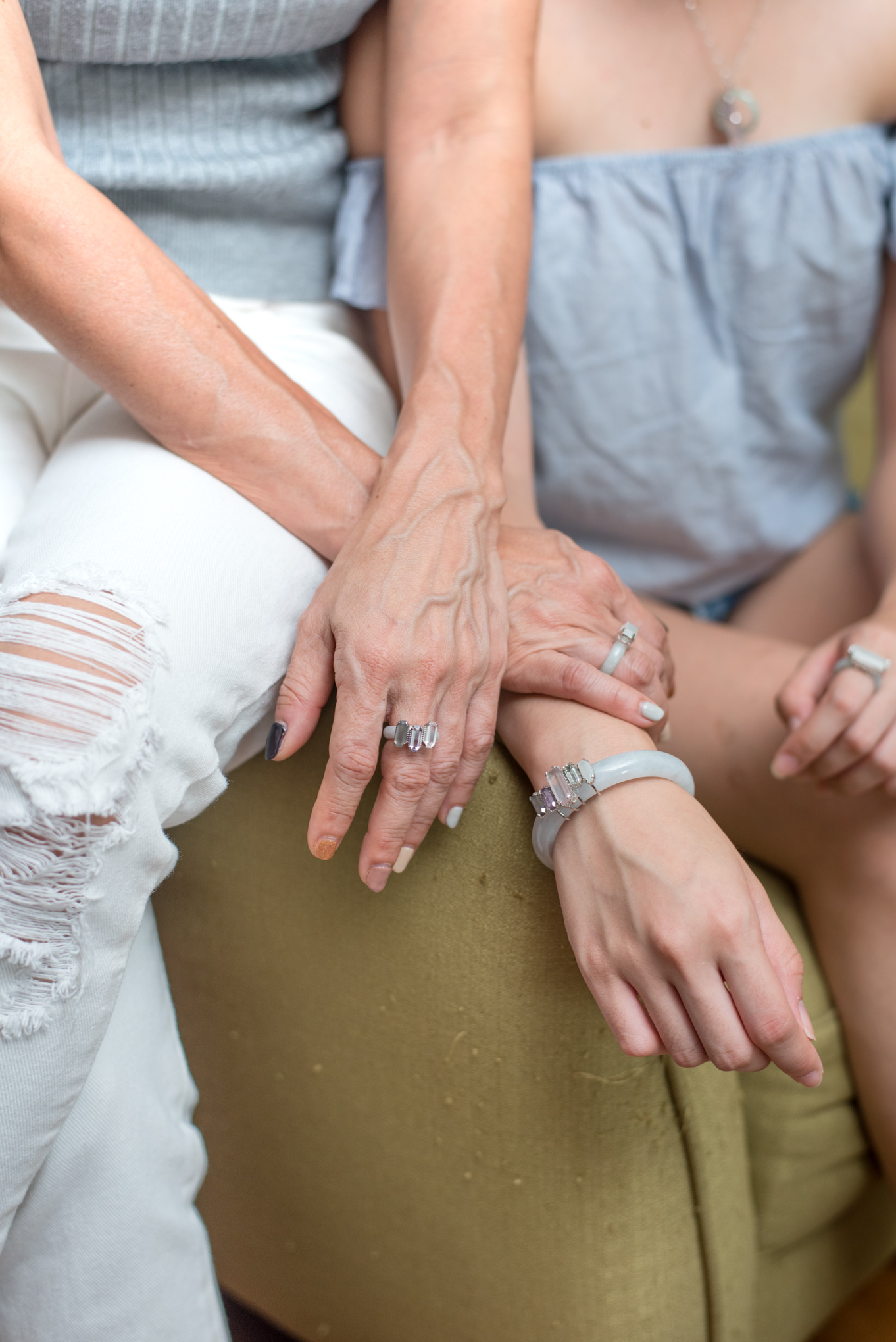Heritage Stories II: Love & Home with Kheng Hua & Shi An
At the heart of any Choo Yilin narrative, is above all, love.
And with love comes the second instalment of Heritage Stories. We speak with Tan Kheng Hua: mother, veteran of Singapore theatre, award-winning actress and producer; and her spirited daughter, Lim Shi-An.
Together, they welcome us into their most special space: Home.
From the very first step into their Joo Chiat Shophouse, their abode spoke volumes of their expressive characters. Vibrant colours decked the walls, tasteful wood furniture projected a warmth throughout the space, and personal touches of portraits and trinkets offered us a glimpse into their shared passion for the Arts.. there is a story behind them all, and we are excited to share them with you today.
Choo Yilin Heritage Stories: Perched comfortably on original 1970s sofas from Kheng Hua’s grandmother, the tales unfolded naturally.
Could you tell us why you chose to reside in a Shophouse in Joo Chiat?
What’s so special about this place that made you want to own it?
Kheng Hua: I love spaces, and when I buy property, it always has to have ‘ghosts’. What I mean by that, is that if nobody has ever set foot in the place, I won’t buy it. At that time, the Shophouses that were available were very expensive - at Emerald Hill or Blair Road. There were other shophouses but they were not in conservation areas, and then I found this one. It certainly did not look like this (then); it was completely congested because a family worked here! It was a fabrics company, and they lived just upstairs. It was completely congested with fabrics and office stuff when we bought it. And this was nearly 20 years ago when Joo Chiat was not as hip as it is now, but I loved all of that. I've always loved to live near communities.
The wall of learning and mementoes in a cosy reading room. The top shelf is a treasure trove of scripts from Kheng Hua's different roles.
How did you turn this house into a home?
Kheng Hua: After buying up the place, it looked completely different from this and the first floor was kept basically empty with the hopes of maybe using it for workshops while we just lived upstairs. Shi-An was just a kid then, so she didn’t really need that much space. Within about 2 years, my younger brother who is an architect came back and somehow we really couldn’t make that equation work (working downstairs and living upstairs) so we decided to just renovate the whole place and make it one living space, especially since Shi-An was growing up. I worked with my brother, the architect. We incorporated a lot of elements of all the homes that have been very close to my heart.
The colour of the wood that you see here is in memory of the wooden table that my brother and I used to sit at during Chinese tuition. The grilles I have now are similar to the ones you’d see at my mother’s home - my younger brother came up with this permutation of the grilles. So I think about this house as very much like a living museum of our lives.
A lot of furniture here is either stolen (from relatives), picked up or set pieces from shows. The pieces I’ve bought, have moved with me from my first house.
And then Shi-An became a sort of teenager (laughs) she’s like an old soul; so we made some little renovations. This is like the third incarnation. After the renovation, we made this entire wing and it's basically Shi-An’s ‘home’.
Pictured above: Original solid wood 1970s vintage furniture. Kheng Hua adopted these from her grandmother, and had them stylishly reupholstered.
Tell us about your favourite part of your home
Shi-An: I have a staircase inside my room, and there’s like a living area and all. I have my own space within my home. But to be honest I don’t utilise it as well as one would think even though it is a very nice space because I just spend a lot of time with my mother sitting here (in the living room). The living room is like the most open part of the house so we’re just drawn to it more.
Kheng Hua: We’re very home-y people, we’re at home a lot. I love to be at home.
Shi-An: Yeah, I always bring my friends home!
Kheng Hua: If people wanna see me, I’d say ‘hey, come over’, and they all know me (and what I'm like), so they’d basically just come over. I’ve had Sandra Riley Tang stand outside and go ‘Kheng! Kheng! Are you home?’ and I’ll be like ‘Yes! Come in!’ (laughs)
Pictured (left): Kheng Hua's father's bed: split in half and repurposed to become Shi An's bed.
Pictured (right): The other half of Kheng Hua's father's bed is now being used in the guest room.
We complement each other.
Kheng Hua: I love spending time with Shi-An and we can spend time doing like everything. All sorts of stuff like even sit around and not doing anything, and I like to hang out with my family. But you know, you still got to be a parent, you got to make sure that their eyeballs are on the right things.
Shi-An: Our relationship is definitely unusual! I always find it difficult to explain to my friends because it’s quite rare. Well, firstly it’s because something that bonds us very deeply is that we share the same passion, which is theatre. It is really what makes us so super close because other than just daily life that we can discuss anytime, we really share a passion for the arts and that’s something we can discuss anywhere, anytime. It doesn’t have to be on a mother-daughter level, it can be just on a person-to-person level because we can just discuss it as a topic. We’re much closer I think, than the average. I think our relationship is very peaceful and connected because we respect and love each other not just as parent and child but as friends and my person. And chemistry.
A touch of Peranakan. Paintings by Kheng Hua's mother. It is clear that a sense of creativity and self-expression runs in the family.
Was it the same type of relationship between Kheng Hua and Shi-An’s Popo (grandmother)? That sense of evolved closeness?
Kheng Hua: I think the love between me and my mum, and the fact that my mum is very essential to me, is the same. I love her a lot, but my mum is very traditional and her way of showing love is very different. She basically just cooks and then you eat (laughs). We don’t expect her to sit down and give us advice. It’s that sort of parents where they think their children know better, but their job is to cook and to make sure that when we were growing up we were well taken care of. Even until today, she’s like that with the grandchildren too. And Shi-An loves her popo too.
For me, Shi-An is essential.
- Tan Kheng Hua
If you could pick a word or phrase that would best describe each other, what would it be?
Kheng Hua: Shi-An. For me, Shi-An is essential.
Shi-An: I would say for my mother, the word is definitely passionate, and that’s like a quality I really, really like, which I don’t have to the same extent. But that’s just my character; her passion is something that makes me feel comfortable in life. I like that energy around.
When do you feel like the best version of yourself?
Shi-An makes my world bigger and nicer.
Kheng Hua: Shi-An always brings out the best things in me. And I’m very flawed, but with Shi-An and a handful of other people, they make me feel happy with myself. They also are people I respect, which is very important with me. I also am very curious about what they think about things, and I always find their thoughts and their attitudes things that add to my world. I think my character is such that I always need to be going forward and somehow Shi-An always, not in a didactic way, allows me to see her go through life. It kinda expands my world and I see things in a different way. She makes my world bigger and nicer.
I can be completely vulnerable with my mother.
Shi-An: For me, it’s not like I’m always a good person when I’m with my Mom, definitely not. But what I consider to be a very good version of myself, is when I’m completely honest, and that is something that definitely comes out when I’m with my mother. So maybe that shows some bad facets of myself as well, but the fact that I can be completely vulnerable with her is to me, what I would consider, the best version of myself.
3 things you value the most?
Kheng Hua: Oh number one for me is peace.
Shi-An: I think same. (laughs)
Shi-An: All I can think of is family.
Kheng Hua: And love.
Peace, Family and Love - is that what “coming home” stands for, as well?
Kheng Hua: Absolutely. For me, when everything gets me down outside, I really want to come home, and the minute I come home I feel peaceful. I’m very lucky. And it’s not just this home, it’s like my mum -I’m really close to her and when I go back home there, I feel very peaceful as well. I’m so thankful that I grew up with a hub of peace that I could always go back to whenever everything out there is going crazy. So I always had somewhere to come back and I want Shi-An to know that she always has a place to come back where nobody’s going to judge her, she can wear whatever she wants or nothing at all (laughs). And do whatever she wants to do with her time, at home. And that it’s just gonna be like that, at home.
Shi-An: Coming home…is also unadulterated comfort, that’s the genuine feeling that I get when I come home.
What are your hopes and dreams for Shi-An as she blossoms into adulthood?
Kheng Hua: It’s the same hope and dream I’ve always wanted for her. I want her to be happy but I want her to contribute to the world in a way that will make her happy and will make the world better. I have a concept and that is to follow your joy. You have to follow your joy because if every decision that you make follows your joy, you’ll always feel more confident.
Shi-An: I think that it’s a good goal that my mother just wants me to be happy and to do something for the world as opposed to having a specific goal or route to take.
Kheng Hua wears the Shophouse Jade Necklace, Shophouse Lumiere Ring and the Shophouse Jade Studs
Shi An wears the Shophouse Jade Donut Earrings, Shophouse Jade Necklace, Shophouse Jade Bangle and the Shophouse Lumiere Ring
Was it a difficult decision for Shi-An to move out of her Shophouse Home, and into her University Hall
because you two are so close, and home is so important to both of you?
Kheng Hua: It’s also important to have an evolved sense of closeness. Like ‘what is closeness?’ I think honesty, and the ability or need to share; I feel that constantly with Shi-An and she knows this. So let's say, if I’m offered a big role overseas for like 6 months, I’d say bye, but I have absolute faith that we’ll still be close. I would say that if the same thing happened to her, and as a mother, if I said that you’re not allowed to go “because I need you here with me”, then we’re not close anymore already. It breaks everything.
Shi-An: I think learning to be independent is a good thing, so no, not at all. I think we have a lot of faith in the fact that we are close and that we will always be. So no matter like where I am, it’s no longer a physical thing. Home becomes a feeling; it’s not tied to a tangible space.
“Home becomes a feeling; it’s not tied to a tangible space.”
The Shophouse Jade Collection embodies the spirit of this sentiment - that we can carry our “home”, a place that is so close to our hearts, a place that knows us inside out, one where we can unabashedly be ourselves - with us wherever we go.
-
Warmed by their genuine closeness, we invited Kheng Hua and Shi-An to style one another as a memento of homecoming before Shi-An moves away to University next week.
“I like the Shophouse Jade Donut Earrings on her. I really like them.”
- Tan Kheng Hua
“I like the Lumiere Ring on my mother. The colour scheme of the ring is very nice!”
- Lim Shi-An
"The thing about jewellery is that anything you put on yourself has to be personality driven."
Home is far more than just a roof over our heads: it’s a safe space where we can retreat, recharge and release. With our latest Shophouse Jade Collection, Choo Yilin features sleek, clean jewellery inspired by Shophouses in Singapore, as a tangible metaphor for the feeling of being home. Each piece is made to be a wearable memento of the space where we can be our true selves, with the ones who know us best and love us all the more for it. We hope you find a piece in the collection that catches your eye, tugs at your heart and makes you feel right at home wherever you go.
A wearable memento of home.
Home is far more than just a roof over our heads: it’s a safe space where we can retreat, recharge and release.With our latest Shophouse Jade Collection, Choo Yilin features sleek, clean jewellery inspired by Shophouses in Singapore, as a tangible metaphor for the feeling of being home. Each piece is made to be a wearable memento of the space where we can be our true selves, with the ones who know us best and love us all the more for it. We hope you find a piece in the collection that catches your eye, tugs at your heart and makes you feel right at home wherever you go.




